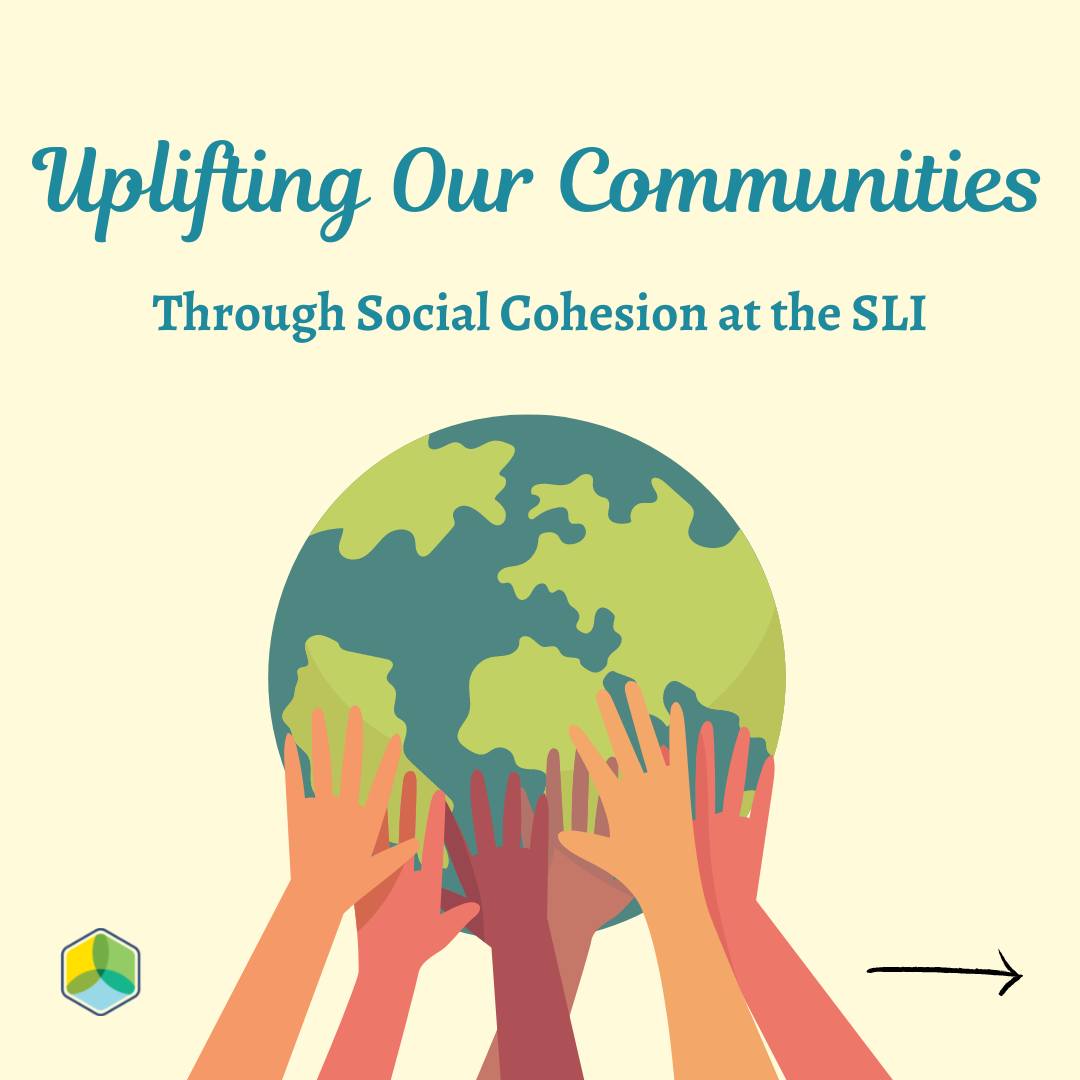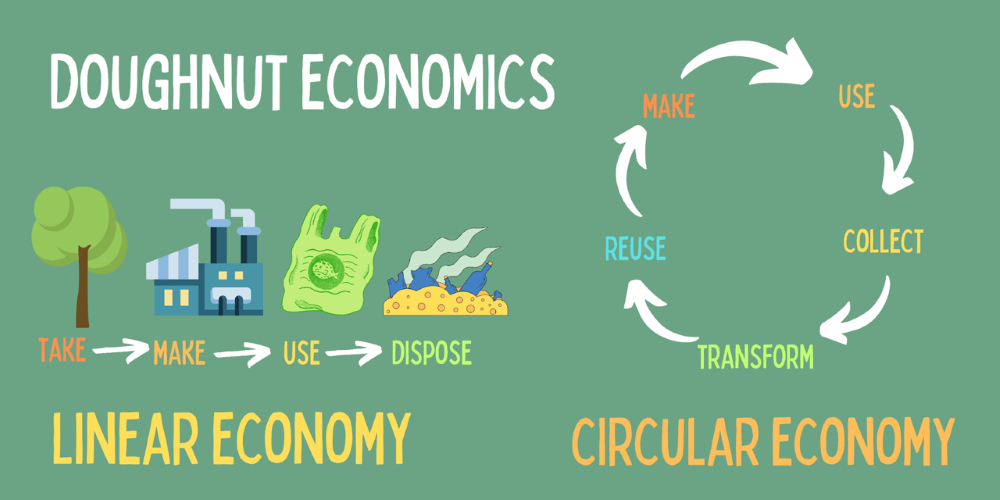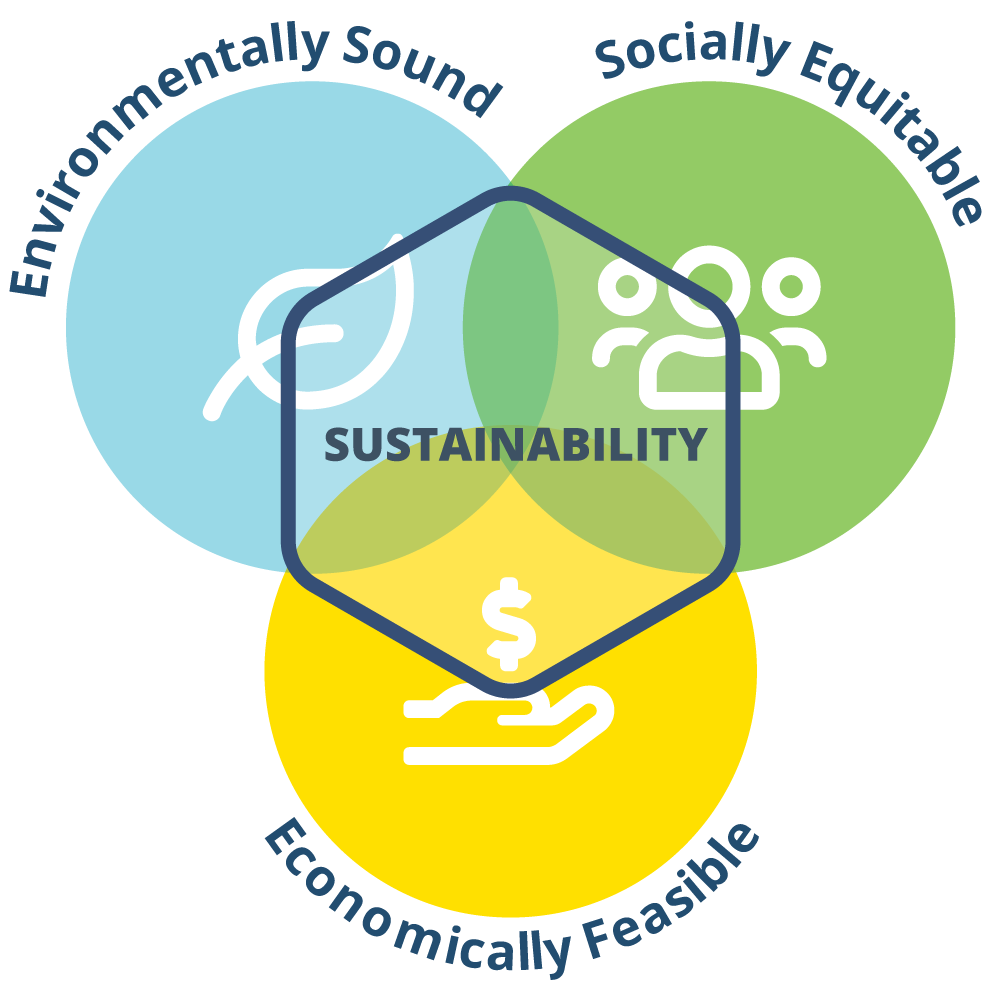Stronger Together: Collective Impact and Climate Action
This article is part of the series of resources and webinars created by the Sustainable Libraries Initiative team, in collaboration with WebJunction, to support libraries in creating a more sustainable future.
Climate change is the grandest challenge of our generation. [1] This requires a level of collaboration that has not been seen before.
One of the defining characteristics of a “Sustainable Library” is serving as a catalyst for social cohesion and civic participation. Along with living your library’s values out loud, climate mitigation, and climate adaptation, this characteristic serves as a hallmark of this movement because without neighbors who have empathy, respect, and understanding for one another’s life experiences we cannot expect people to work together to problem solve in the face of climate change and its many intersectionalities.
For many years we have waited for governments and businesses to solve for climate change, but the reality of the situation is that every job is a climate job [2] and every institution is a climate action vehicle. Libraries are uniquely positioned to aid in this effort due to our educational mission, our vision for a stronger future for all through knowledge acquisition and respect for the wisdom of those who came before us, and the trust equity we currently maintain in our communities, on our campuses, and in our schools.
The job today is to transition from passive knowledge banks to institutions that live our values out loud, take action on climate change mitigation and adaptation, and step into our role as catalysts for social cohesion and civic participation.
Social Cohesion

on Facebook
In the book Heat Wave: A Social Autopsy of Disaster in Chicago, researcher Eric Klinenberg’s findings indicate something many of us know instinctually: social cohesion can improve a community’s survivability rate during and after natural disasters. It leads to higher degrees of cooperation thanks to increased levels of social capital.
- Social Cohesion: the strength of relationships and the sense of solidarity among members of a community. [3]
- Social Capital: the information, trust, and norms of reciprocity inherent in one’s social networks. [4]
When more neighbors know one another, have respect, empathy, and understanding for each other’s life experiences, this strengthens social cohesion. You can think of it like the fabric of a community, loosely knit fabric can result in folks slipping through the openings, while a tightly-knit fabric creates a soft place for people to land in turbulent times.
This close-knit community is more likely to band together in the face of adversity. To consider those who are under resourced or underrepresented in decision making; to come to one another’s aid in times of need; and to generally contribute to a more congenial community atmosphere that encourages others to join in and be a part of something larger than themselves.
Civic Participation
The Healthy People 2030 initiative from the U.S. Department of Health and Human Services sets data-driven national objectives to improve health and well-being over the next decade. In this framework, civic participation is identified as a critical element that encompasses a wide range of formal and informal activities, such as voting, volunteering, participating in group activities, and community gardening. Some are individual activities that benefit society (e.g., voting) or group activities that benefit either the group members (e.g., recreational soccer teams) or society (e.g., volunteer organizations). [5]
The research shared through the Healthy People 2030 initiative indicates that civic participation builds social capital, a mutually reciprocating system that ultimately results in collective impact work.

Collective Impact
The American Library Association’s Center for the Future of Libraries identified the trend of “Collective Impact,” almost a decade ago:
“In the face of limited resources and persistent, big social issues (hunger, poverty, violence, education, health, public safety, the environment), organizations from different sectors are adopting common agendas to combat issues within their communities.”
Complex social issues – such as climate change – are just that: complex. They do not unfold in isolation but are impacted by, and exacerbated by, each other. For example, in a low-lying coastal region where land was previously found to be undesirable and therefore affordable to folks with less income, we now find these under-resourced neighborhoods to be some of the most vulnerable in the face of sea levels rising and more frequent and severe coastal storms. The generational poverty experienced by marginalized communities in the U.S. have resulted in municipalities being unable to afford the technology and climate change adaptations necessary to protect these communities. Folks in these communities likely do not have the resources to evacuate safely or move out of this region on their own, creating a wave of future climate refugees who will be displaced by the coming impact of climate change, further damaging their economic standing and weakening social cohesion of communities. Tangled up in this example are issues related to poverty, systemic racism, and environmental injustice.
Collective impact was first introduced in an article from the Stanford Social Innovation Review in 2011, authored by John Kania and Mark Kramer. In the article, the authors defined collective impact as “the commitment of a group of important actors from different sectors to a common agenda for solving a specific social problem.” [3]
Libraries in the Sustainable Library Certification Program (SLCP) from the Sustainable Libraries Initiative (SLI) are confronting this issue and forming partnerships to step up to be a part of a stronger community. Valencia College Library in Florida is part of “Pooky’s Pantry,” a program to ensure students in need have what they need. “A person’s need does not happen in a silo;” said Charles Ensminger, director of Student Development for Valencia, “if you need housing, there is a good chance you need food, and if you need food and lodging and are a parent, odds are you need childcare.” The pantry offers support and connects students to resources in five areas — food insecurity, housing insecurity, mental health support, transportation assistance and childcare. Read more about Valencia College Library’s sustainability certification journey here.
Libraries across the country are:
- Teaming up with first responders to participate in readiness training for communities, from hosting preparedness courses for the community to preparing as institutions through disaster preparedness training such as Organizations Preparing for Emergency Needs (OPEN).
- Working with food banks and pantries close the gaps in food insecure neighborhoods, from community supported agriculture on library grounds to community refrigerators that are open to all. (Check out SLCP participant, the Millbrook Library to learn more about their Community Fridge program.)
- Iterating services and programs to be as relevant and responsive as possible on a faster design cycle. For example, by hosting community conversations to hear what challenges residents face to develop services and programs in partnership with other community agencies to assist them. (Check out the final presentation of the Haverstraw King’s Daughters Public Library, a SLCP-certified library, to learn more about how they are iterating to meet community needs based on what they’ve learned through these conversations.)
When all is said in done in your career, and the next generation looks back at the good work you have done, we hope that you are proud of yourself for taking the time to participate in the SLI-WebJunction series on sustainability. Climate change IS this generation’s grandest challenge. Our hope is that the tools, resources, and stories you have connected with throughout this series has better prepared you as a library worker to consider your role in strengthening our institutions and our communities for what lies ahead.
It is with great gratitude that I wrap up this series. Thank you to the amazing team at WebJunction for inviting the Sustainable Libraries Initiative to share what we are learning through our work with hundreds of library folks throughout the U.S. and Canada. We could not be prouder of our growing community of practice and how the lessons learned by these early adopters are identifying the patterns necessary for accelerating climate action work throughout the profession. Thank you for joining our community of practice through your participation in this series.
References
[2] https://drawdown.org/publications/climate-solutions-at-work
[4] Woolcock, Michael. 1998. “Social capital and economic development: Towards a theoretical synthesis and policy framework.” Theory and Society 27: 151-208
[5] Abbott, S. 2010. “Social capital and health: The role of participation.” Social Theory & Health 8(1): 51–65.
Webinars in the series
Visit each listing for recordings and handouts and use the Series Learner Guide (doc) together or with others, to take action on your learning.
Sustainability 101
Recording now available
Climate Action Planning (Part 1): An Introduction
Recording now available
Climate Action Planning (Part 2): Disaster Preparedness and Community Resilience
Recording now available
Climate Justice
Recording now available
Living Our Values Out Loud: Programs that Walk the Talk
Recording now available
Stronger Together: Collective Impact and Climate Action Programming
Recording now available
Inspired to learn more?
If you’re looking for climate justice strategies you can subscribe to the free, monthly newsletter of the Sustainable Libraries Initiative for more ideas, stories from the field, and resources to help your library and community.

